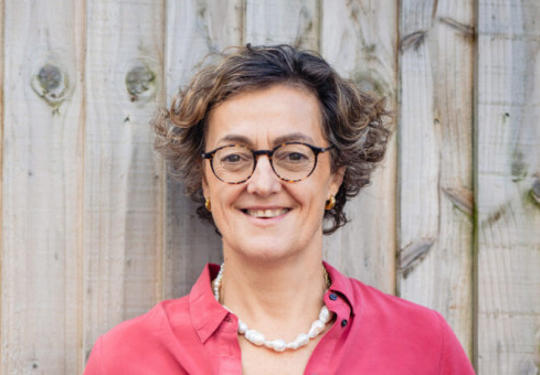In her March blog, Dr Hilary Williams, RCP vice president for Wales, looks at how we stop patients falling between the gaps through building in MDT working, reform of rotational training, and continuity of care
Recently, I took a quick call from a surgeon in my multidisciplinary team (MDT). They wanted to discuss the really challenging situation of a young patient in a completely different hospital. Within three minutes we had exchanged key information and agreed clear next steps and clinical decisions.
I knew the patient, I had looked at the scans, and I talked to our acute oncology team. Critically, there’s a real understanding and a shared trust with my surgical colleague that allows us to work together. But I am not available 24/7 and as the number of patients we look after grows so does the risk of fragmented care, and we potentially lose sight of the patient at the heart of our job.
This is not easy, and the experience of our patients and acute inpatient teams was summarised by a recent Healthcare Inspectorate Wales report, which found:
‘at any junction in the care and treatment pathway of a patient, there is huge potential for delay, a pause in treatment, and an overall introduction of risk that is not there at other times.’
I keep coming back to the issue of patients ‘falling between gaps’. I strongly suspect that this isn’t unique to Wales. It is easy to describe the problems of the NHS in all four nations, and even after accounting for nuances of local delivery, the solutions are often broadly the same. In fact, what we need is an absolute focus on implementation and delivery of change. Very rarely does the solution involve a restructure!
I don’t think anyone would disagree that the current standard where patients experience multiple changes of wards, or frequently become medical ‘outliers’ on wards which increases complexity for teams and risks for patients, is acceptable.
Reforming rotational training
But what about how we work and train? I have been talking to our trainees, and my friend and colleague, the RCP’s senior censor and vice president for education and training, Dr Mumtaz Patel, about the real possibilities of reforming aspects of rotational training. Living and working in fewer places could really help trainees’ lives, but could patients benefit too?
I remember rotational training. There were certainly benefits of working with new teams but you started the day feeling a bit nervous for the first few weeks. It took time to work out how to get there, where to leave your coat and bag, where to make a cup of tea. But, perhaps most importantly, you didn’t know your colleagues and they didn’t know you – not just the close team but critical wider networks. For me in oncology, that’s radiologists, surgeons, critical care, palliative care and many more.
No clinical team is an island, and each speciality has key colleagues and services they rely on. It always takes time to settle into a new clinical setting; to build relationships not just with clinicians but porters, secretaries and digital support; to know where to find some help; and to find a sense of belonging.
Reducing the number of times trainees need to go through induction or rotate to new hospitals, could give more time to care, build up important networks, and learn from (and with) our senior clinicians.
The RCP team in Wales recognises that, as senior clinicians, one of our key roles is making decisions, managing risk and increasingly helping to navigate patients through a very complex system. Our decision makers of the future need to actively have the opportunity to build skills in understanding the whole patient journey, gain confidence in leading decision making, and, critically, they must learn to become a highly valued and trusted member of a team.
As we become more experienced – and this applies to all doctors – we tend to become better at judging when to do another test or make a decision on the information we already have. We trust our own skill set as opposed to referring to a colleague. We understand the guidelines, but also what’s best for our patient. It’s this clinical wisdom we develop when we become part of a team.
Navigating new hospitals and new systems takes a lot of time, and that means less time with patients. Another important debate is whether final year medical students should work as clinical assistants. Being paid and learning to navigate clinical settings, balanced with appropriate training, shows clear early benefits to students and patients alike.
Continuity of care and effective discharge
Another challenge we hear is that trainees are rarely in one place long enough to tackle a problem, implement a change and see the benefits. But what if trainees had one place to work with local teams to make a change and see patient care improve? Could fresh eyes assist with old problems?
Continuity of care isn’t just about what happens in our hospitals. Our trainees are highly valued but only one part of the care we deliver, and part of a much wider system. How do we help patients and families leave hospitals with the information they need to live well at home and link up with local services when needed?
A lot has changed in medicine, but somehow the discharge summary seems to have been left behind. I look forward to discussions with colleagues about how we can get discharge right in 2024, with perspectives from Dr Inder Singh, Dr Karl Davis and GP, Dr Rowena Christmas. Watch this space.
Join us at Medicine 24 when we will be keeping the focus on the generalist skill set. We always welcome contributions from the smaller hospitals (we love those in Wales) where we know many of our older and more deprived patients are cared for.
And please keep talking to your friends and colleagues. Times are tough, but the more change is clinically led and less about the quick wins and reconfigurations, the more likely it is to stick.






